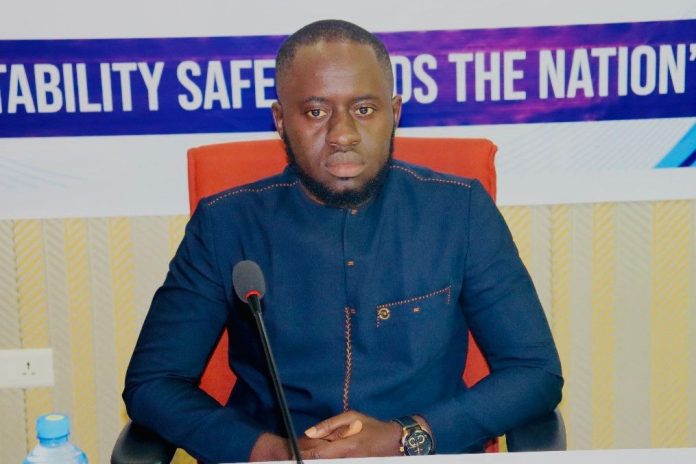By Kebba AF Touray
In testimony before the National Assembly’s Special Select Committee on Thursday, Sheriff Omar Jabang said that key records detailing the sale of former President Yahya Jammeh’s assets were not found in the files of the Sheriff’s Office, raising fresh concerns about accountability in the execution of court orders related to the Jammeh Commission.
Appointed as Sheriff on October 2, 2023, Jabang told lawmakers that while he submitted available statements and documents in response to the Committee’s summons, the files contain no information about the sale or valuation of livestock previously attributed to Jammeh. “These are the documents I found in the file, and the file is here,” Jabang said, noting that his review revealed a critical lack of documentation.
He explained that prior to his appointment, the office was overseen by the late Lamin L. George, who acted in the role after Abdou Conteh—then the substantive Sheriff—was elevated to Judicial Secretary.
Responding to questions from Counsel Kah, Jabang outlined the formal process of sales execution by the Sheriff’s Office, stating that execution requires a warrant, after which attached movable properties, such as vehicles, are valued, publicly advertised in newspapers, and sold at auction. A return of sale is then filed, indicating the sale price and buyer. He added that immovable properties require a three-month notice prior to valuation and sale.
On the day of a sale, he explained, “they would normally go with a bell which is rung and the sale starts,” with bidding initiated slightly above the valuation price. The highest bidder would secure the property, but payment—under a new Ministry policy—must be made directly to a bank on the same day for any amount above D100. The policy, he said, began between 2022 and 2023, during his time as Principal Magistrate at Kanifing Magistrates Court.
Before this policy, payments could be made in cash to the bailiff on the ground, he added. In both cases, records of payment and sales returns were supposed to be kept on file. For vehicles, the Sheriff would write to the police licensing department to initiate ownership transfer; for land, the Chief Justice’s office would issue a certificate of purchase.
When pressed about the absence of sales records for Jammeh’s livestock, Jabang said, “I do not know and would not know.” He recalled that after receiving the Committee’s summons, he asked Justice Tabally—who was present in his office along with the Deputy Sheriff and Principal Bailiff—about the existence of any such records. “He intimated to me that there exists none,” Jabang said.
A High Court order had instructed the Sheriff to conduct the valuation and sale of the livestock and directed the Gambia Livestock Marketing Agency (GLMA) to assist. But Jabang said there was no correspondence from GLMA in the files and that the former Sheriff had confirmed no valuation was done. “This is the condition precedent that should have been met,” he said. “In this case, this is what should have been done.”
He added that while the Sheriff’s Office uses one or two valuers for land (appointed by the Judicial Service Commission) and relies on a private valuer, Mr. Sanneh, for vehicles, they typically reach out to relevant government agencies when expert valuation is required. In the case of livestock, that agency would have been GLMA, per the court’s order.
The Committee also examined the financial oversight of the accounts where proceeds from Jammeh’s asset sales were deposited. Jabang said the initial signatories were then-Judicial Secretary Landing M. Sanneh and Sheriff B. Tabally. At some point, Tabally—then Master of the High Court—wrote to the bank to update the signatories to reflect the current Judicial Secretary and Sheriff, who Jabang assumed would be Justice Isatou Jallow Sey and Abdou Conteh.
When asked whether Mr. Binger, Director of Civil Litigation, was ever a signatory to the account, Jabang said, “Mr. Binger was not a signatory to the account at any point.” This was despite indications that Binger had instructed the bank to transfer funds to a designated account.
The Committee is expected to continue its investigation into the matter in the coming weeks.



















